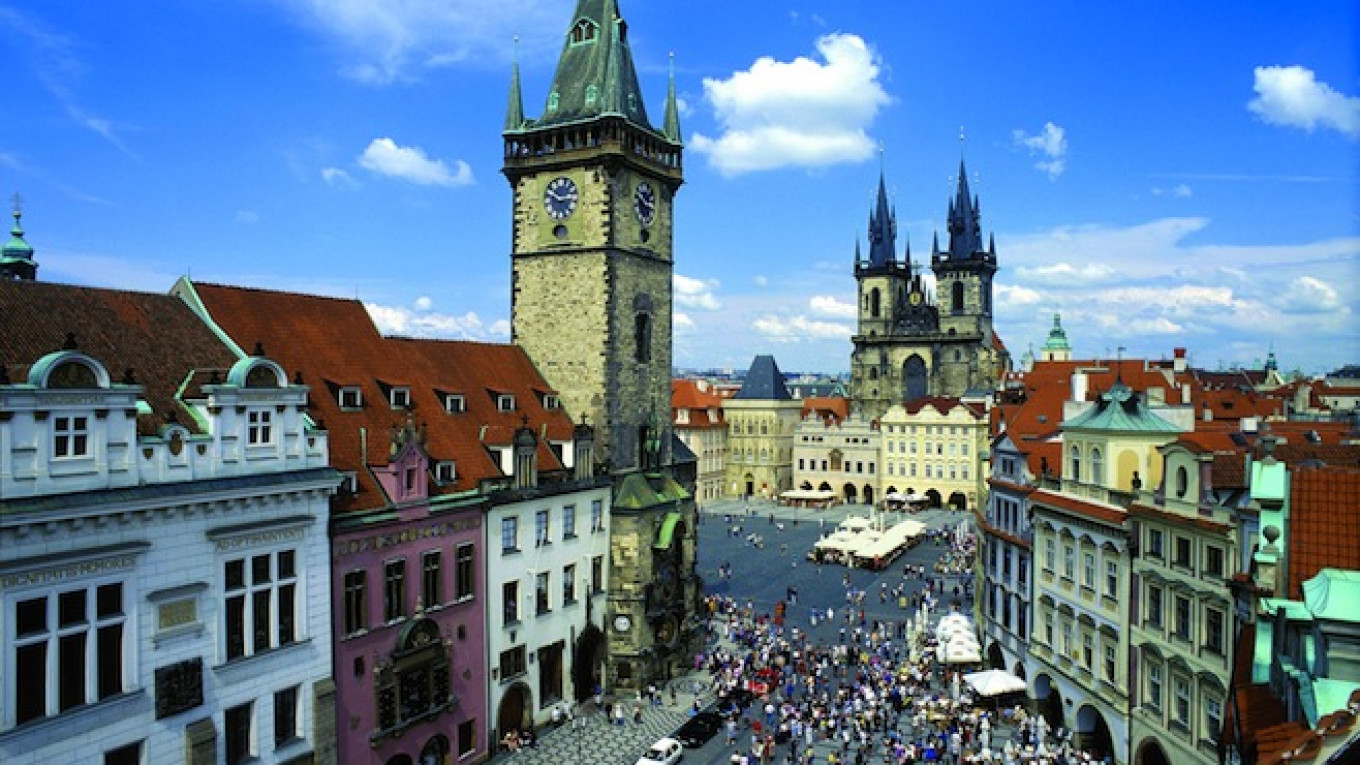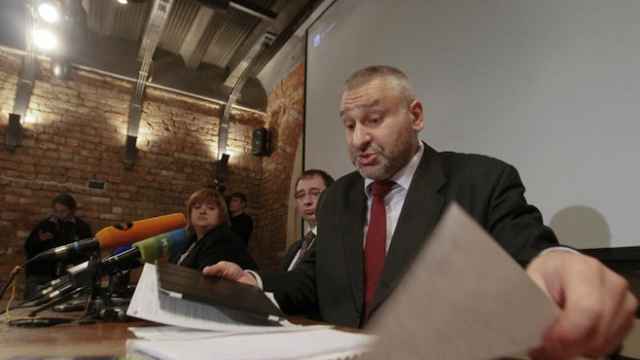Russia deployed an "extremely high" number of intelligence officers at its Czech Embassy last year, the NATO member country's secret service said in an annual report released Monday.
The reported increase in spying comes as relations between Russia and the West have worsened, culminating in the Ukraine crisis that began a year ago with street demonstrations against pro-Russian President Viktor Yanukovych.
Czech spy-watchers have long warned about Russian intelligence services activities in the central European country, a member of the European Union, which is popular with Russians who often travel to and buy property in the country.
The Security Information Service, оr BIS, said Russian and Chinese spies in the Czech Republic work mostly to use politicians or journalists to extend their influence and secure their countries' economic interests.
"Both the Russian and the Chinese Embassy employ intelligence officers serving under diplomatic cover. In 2013, the number of such officers at the Russian Embassy was extremely high," the BIS report said.
Other intelligence officers traveled to the Czech Republic individually as tourists, experts, academics or businesspeople.
"Russian intelligence services attempted to make use of both open and covert political, media and societal influence to promote Russian economic interests in the Czech Republic," the report said.
Russian intelligence activity previously jumped in 2007, when the Czech Republic and the United States held negotiations on building a missile defense radar in the country. The plan was eventually canceled by U.S. President Barack Obama's administration after also running into opposition in the Czech parliament.
The current center-left Czech government has taken a cautious approach as relations between Western countries and Russia have deteriorated this year over Moscow's role in the Ukraine crisis.
A number of Czech officials have spoken against sanctions imposed by Brussels — for which Russia has retaliated by banning food imports from Europe — although the government has backed the EU's actions.
Yanukovych's overthrow in February prompted Moscow to annex the Crimea peninsula and back separatist rebellions in eastern Ukraine in which more than 3,700 people have died.
The BIS has in the past warned of Russian intelligence officers building networks in the country using Czech citizens as well as the local Russian community.
The Polish government said Saturday that it had withdrawn accreditation from a Russian journalist after arresting two Poles, including a military officer, earlier this month on suspicion of spying for Russia.
The BIS said that rejecting Czech visas or accreditation for Russians with ties to the intelligence services had led to cases of retaliation against Czech career diplomats.
A Message from The Moscow Times:
Dear readers,
We are facing unprecedented challenges. Russia's Prosecutor General's Office has designated The Moscow Times as an "undesirable" organization, criminalizing our work and putting our staff at risk of prosecution. This follows our earlier unjust labeling as a "foreign agent."
These actions are direct attempts to silence independent journalism in Russia. The authorities claim our work "discredits the decisions of the Russian leadership." We see things differently: we strive to provide accurate, unbiased reporting on Russia.
We, the journalists of The Moscow Times, refuse to be silenced. But to continue our work, we need your help.
Your support, no matter how small, makes a world of difference. If you can, please support us monthly starting from just $2. It's quick to set up, and every contribution makes a significant impact.
By supporting The Moscow Times, you're defending open, independent journalism in the face of repression. Thank you for standing with us.
Remind me later.






